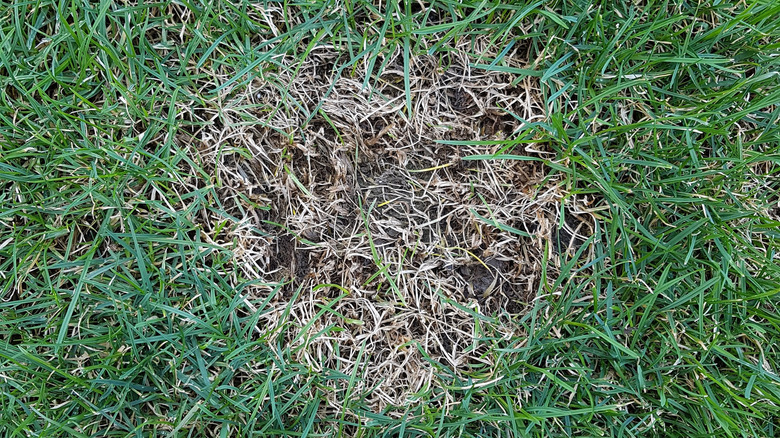Fight Lawn Fungus With A Trusted Natural Solution
Have you noticed some ugly brown or yellow patches appearing on your lawn? These patches could be the result of a fungal disease, and there are plenty of types of fungal disease that can infect your lawn and reduce its lush appearance. Of course, there are environmental factors that can damage your lawn too, but lawn diseases are often caused by fungal infections. While you can treat your lawn fungus with a chemical fungicide, why not opt for a more natural solution in the form of neem oil?
Neem oil is derived from the seeds of the neem tree (Azadirachta indica), which is naturally found in the tropical forests of India and nearby countries. It's a fast-growing tree with large pinnate leaves and fragrant flowers that are normally white. The oil extracted from the seeds can commonly be found in a large number of products, including soaps, cosmetics, lubricants, and pesticides and fungicides for garden use. In fact, neem oil has been used as a natural pesticide for hundreds of years, and products derived from neem trees can even repel mosquitos. So, how can this natural product help to combat lawn fungus?
How does neem oil work as a fungicide?
Neem oil is available in many garden products designed for both insect and fungal control. As a fungicide, neem oil helps to stop fungal spores from germinating and entering the leaf tissue. This means that it's not possible for neem oil to kill the fungus that's already present in the leaf blades of your lawn, but it will stop the disease from spreading and offers the ability to control it. So, when you spray your infected lawn with a neem oil solution, you won't see any positive results until the new grass starts to grow and covers the infected patches of lawn.
The best way to use neem oil on your lawn fungus is to select a neem product from your local garden center that is labeled as a fungicide. This should have correct application methods on the pack. However, a general guide is to mix three tablespoons of the oil in one gallon of water. This mixture can then be placed in a spray bottle and sprayed on the infected areas of your lawn. You'll have to continue spraying these infected areas every few days to ensure that no further infection occurs. You also want to reapply the neem oil after it has rained because the rain will dilute it and reduce its effectiveness.
As an alternative, you might like to investigate the difference between neem oil and neem powder to see which works better on your lawn.

